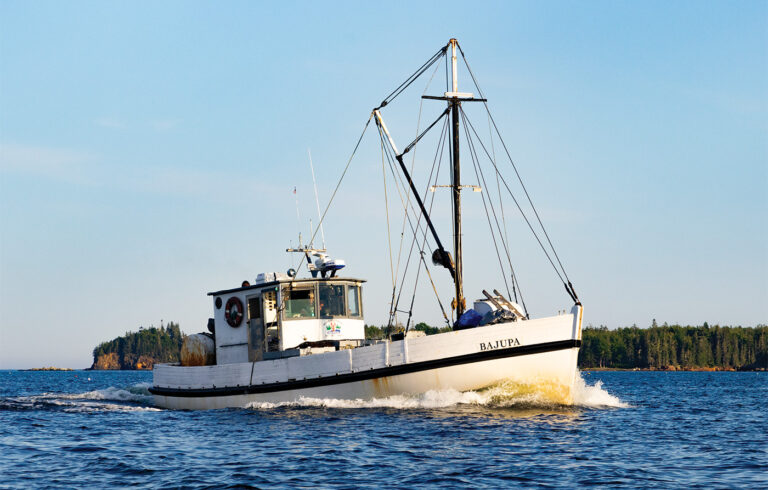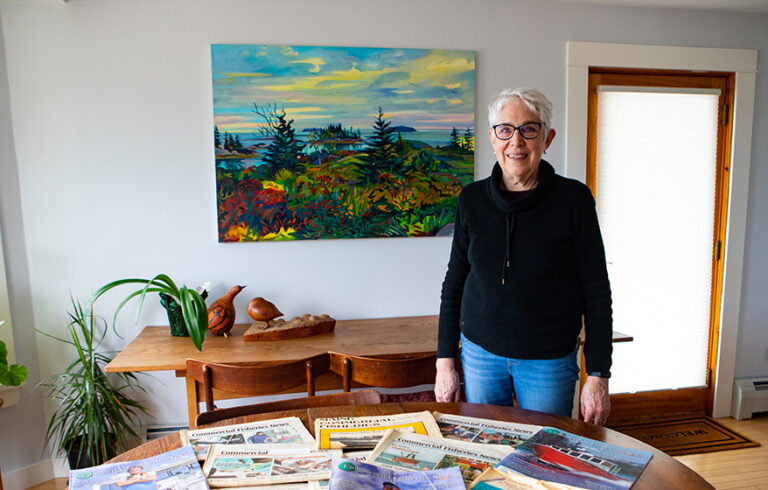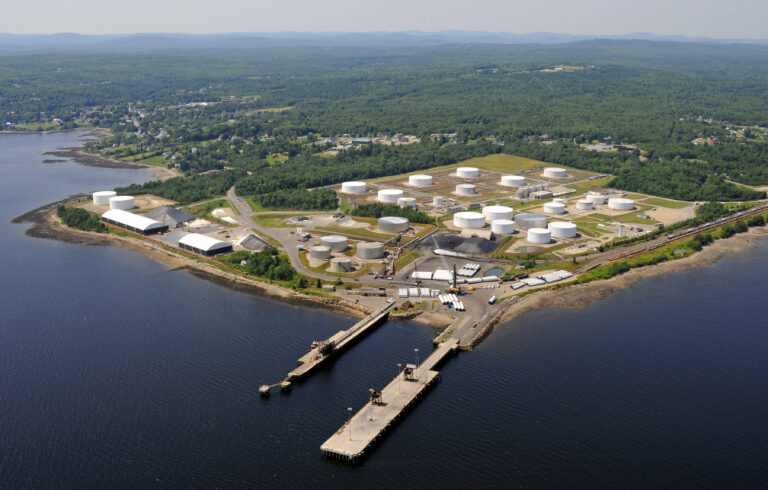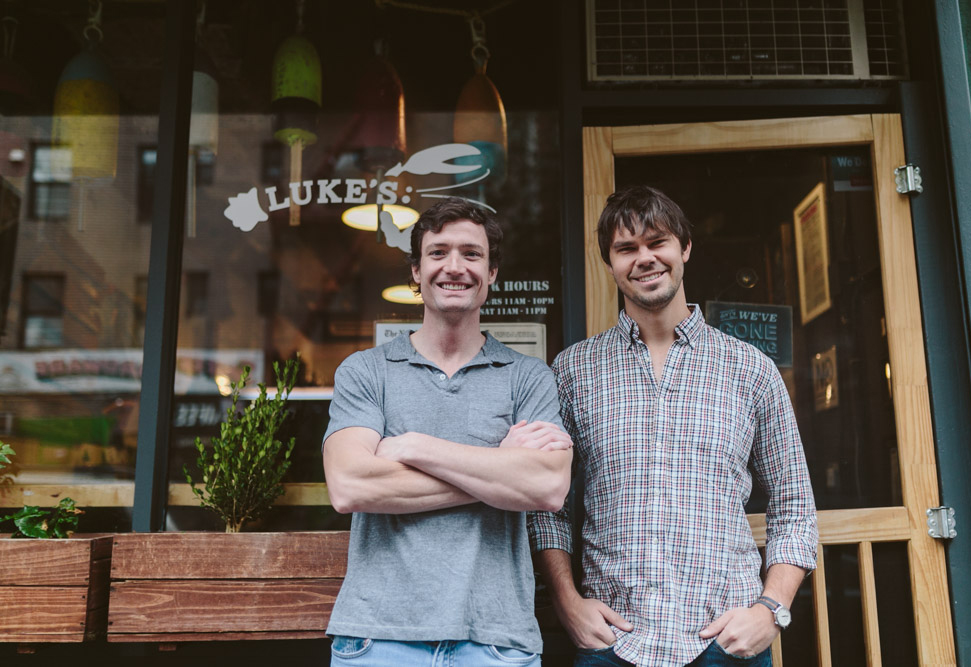
You hear a lot of horror stories associated with Craigslist ads, but this is not one of them. You could say it’s a business success story that has big implications, maybe even revolutionary ones, for Maine’s lobster industry. But maybe it’s best described as—dare we say it?—a whale of a tale.
Ben Conniff was a freelance food writer who really wanted to ditch the freelance life and get an employed position in the food industry. He jumped on Craigslist to look for his golden opportunity. He found and applied for lots of counter service and back-of-house jobs, but nothing developed.
Then one day he saw an ad for his dream job. It was posted by a guy named Luke Holden, a native of Cape Elizabeth who grew up on lobster boats but was working in investment banking in New York City. (“I was content and happy to do that until my parents basically said that it was time to do something else with my Georgetown education,” Holden said.)
Holden’s Craigslist post read something, in essence, (very loosely, mind you) like this:
“Opening up a Maine lobster shack in the East Village. I have no practical experience, but have great products and great familiarity and experience with Maine lobster shacks. Come help me do it.”
Conniff applied even though the only experience he had with lobster shacks was eating at the one on the wharf at Five Islands in Georgetown during childhood vacations. But he got the call and interviewed.
“I went in and met Luke and he actually had a good head on his shoulders and a really good business plan,” he said. “I probably would have done it anyways because it sounded exciting,” he added, “but the fact that the plan sounded like it would work made it more appealing.”
It was mid-August 2009. Holden told him that people buy lobster seasonally (read: not in the winter) so they’d have to open within a month. This timetable would have rung alarm bells in a lot of people, but not Conniff. Instead, he said to his new business partner, “OK. Where are we now?”
They didn’t have a location yet. This still did not give him pause.
As it turns out, his willingness (or craziness) to roll with it was a good thing, because what has happened since has been quite the ride.
With help from Holden’s father, a fisherman and lobster processor, they opened the first Luke’s Lobster that October, 30 days after signing the lease on their first location in Manhattan, and hit the ground running, learning fast on their feet. “It was insane,” Conniff said.
LOBSTER CHAIN
Today, there are 28 Luke’s Lobster restaurants in the U.S. in some of the country’s biggest markets, such as Boston, New York City, Chicago and Miami. There’s also one in Tenant’s Harbor (more on that later), six in Japan and, as of this writing, one scheduled to open in Taiwan in the spring of this year. Last year, the restaurants did more than $30 million in sales.
Pretty impressive stuff for a couple of young guys with no restaurant experience. But here’s where things really get interesting and where the potential for positive change to Maine’s lobster industry comes into play.
In 2012, just three years after going into the restaurant business, the pair decided to do something by all accounts rare in the restaurant industry and unheard of in the lobster industry: vertically integrate.
Holden and Conniff strongly believe in the farm to table—or in this case, trap to table—movement that is characterized by consumers who want to know where their food is coming from, how it is harvested and who produced it. They are committed to sustainable fishing and business practices, delivering a quality product, and supporting fishermen and their communities.
“With someone like Luke—he’s really kind of started to crack the code, in a way, in being able to figure out how do you vertically integrate a supply chain that has historically been unintegrated,” said Briana Warner, economic development director of the Island Institute, publisher of the Island Journal. “That’s really the innovation here.”
“We employ a stake holder model versus a shareholder model,” said Holden. “We look at everybody in our business, whether it’s our fishermen, our suppliers, our teammates. And we look for win-wins. We don’t look at the business and make short-term decisions that just positively affect profits. We think that type of decision-making process ultimately kills the business, and that’s not how we’re motivated as business managers.”
In order to meet the high standards they set for themselves and their business, they needed more control over their supply chain, hence their vertical integration strategy.
They began Cape Seafood, a seafood processing plant in Saco, that prepares and packages lobster and crab for Luke’s Lobster restaurants. In 2017, the Cape Seafood team of about 150 people processed over 4 million pounds of lobster and about a million pounds of crab, said Holden. Most of the lobster and crab is sourced from Maine fishermen, he said, but they also buy from Rhode Island and Marine Stewardship Council-certified fisheries in Canada.
Then they put in place the clincher in their vertical integration strategy: They partnered with the Tenants Harbor Fishermen’s Co-op.
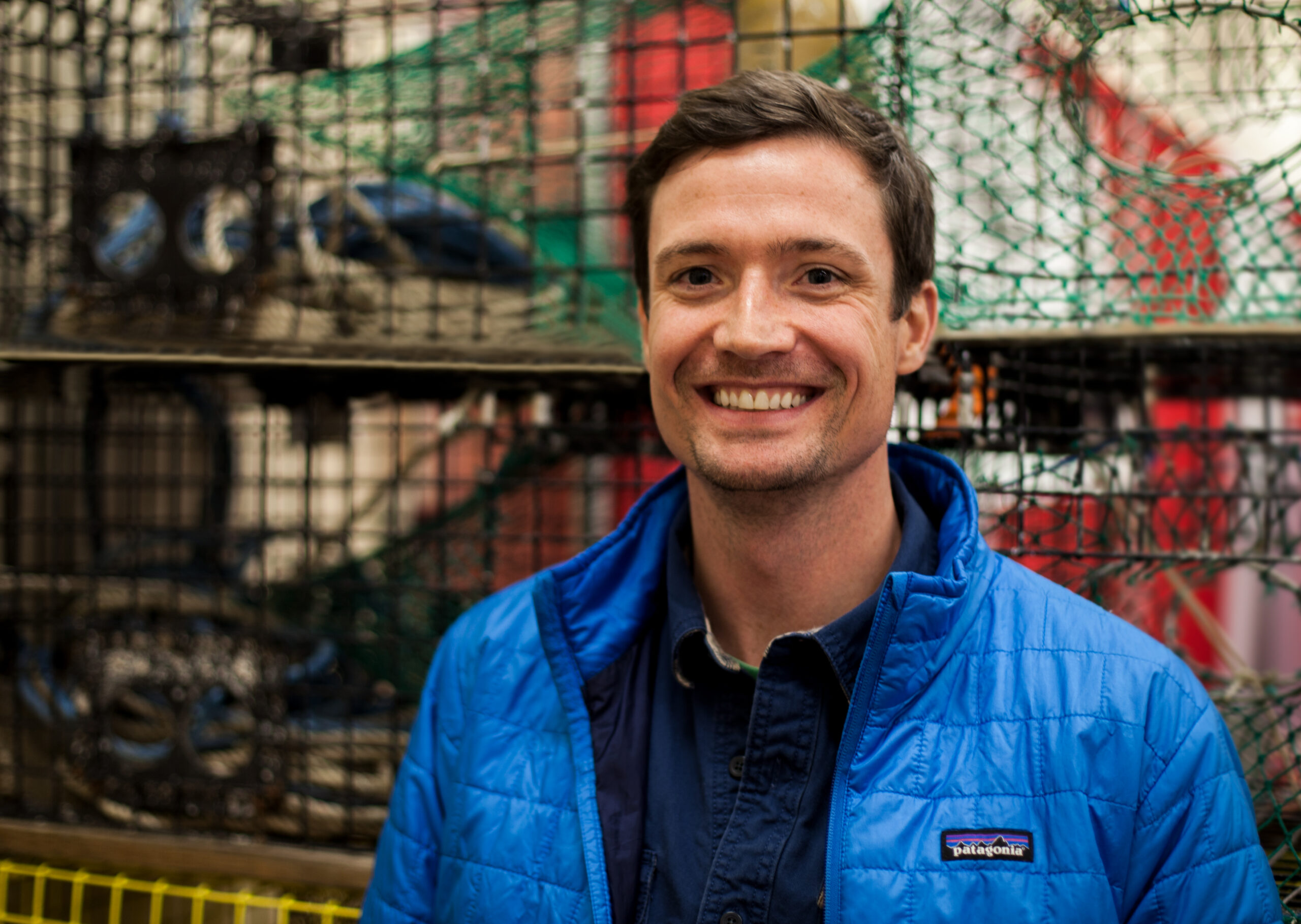
BACK TO TENANTS HARBOR
Cape Seafood buys 100 percent of the catch of the lobstermen in the co-op, said Holden, so instead of going dock to dock selling to whoever is offering the highest price on a given day, the co-op fishermen know where their product is going and know they will get a fair price. Luke’s Lobster and Cape Seafood get a dependable product source and the quality they want.
For the co-op fishermen, the partnership with Cape Seafood offers them the ability to run a leaner business, potentially earn a few extra nickels per pound (which adds up over pounds and time), share in the revenues generated when Cape Seafood sells products made with lobster harvested by co-op members to retailers such as Luke’s Lobster or Whole Foods.
They also get to work with a trustworthy partner that respects and understands them and their business. And that’s no small thing in the lobstering world, where distrust between buyers and lobster harvesters is commonplace, said Josh Miller, a lobsterman from Tenants Harbor and a member of the co-op.
“If we can establish a relationship with a buyer we trust and we feel like we’re always getting a fair price and we’re not haggling and fighting, that’s a big benefit for us,” he said.
The partnership between the co-op fishermen and Cape Seafood was not a foregone conclusion. Holden had to prove to the fishermen that he was serious and trustworthy. So, he offered to open the first Maine-based Luke’s Lobster restaurant in Tenants Harbor on a wharf owned by Josh Miller’s family, where a restaurant had operated but had closed two years earlier.
He also agreed that 50 percent of the profits from that location would be shared with the fishermen in the co-op. The restaurant opened in 2016 and due to start-up costs, didn’t offer any profit sharing that first season. Numbers for 2017 had yet to be determined at the time of writing.
“Right off the bat, Luke went out on a limb with that,” Miller said. He’s continued to earn trust by not only visiting the Tenants Harbor location, but going out on the boats with the lobstermen and inviting them to participate in company events, like the opening of new Luke’s Lobster restaurants, and be part of the corporate team attending seafood conferences.
“They’re probably not the first buyers to go down to the shore and buy product directly off fishermen,” he said. “There are other companies that do that, but the level of participation and interaction that they’ve had with us and we’ve had with them, I’ve never heard of that before.”
With their personal and business ethos of doing right by their customers and by the fishing community guiding them, it’s safe to say that their whale of a tale is likely only to get bigger. In other words, to be continued …

